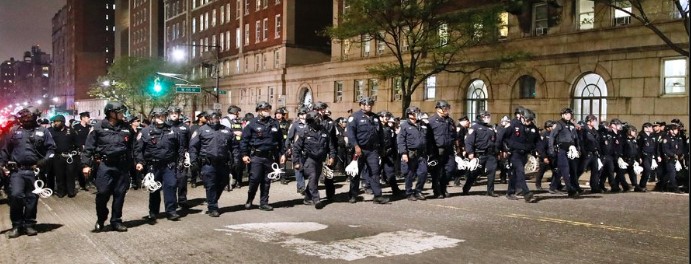Following our review of the new pamphlet calling for an enquiry into the blacklisting scandal, we are publishing here an account of a carpenter who was himself blacklisted.
By Jack Fawbert, former UCATT member
It was 1974. I had been working as a carpenter on building sites in and around East London and South Essex for about 5 years. I had now started work on a site in Harold Hill for the GLC. Like myself, all the other twenty or so carpenters on site were members of the trade union UCATT. They elected me as their shop steward. It wasn’t long before I had to ask them to take industrial action in support of the painter and decorators’ shop steward who had been sacked for allegedly assaulting a supervisor. An investigation cleared the shop steward, he was reinstated and we all returned to work.
After I was there for 18 months, it became clear that the site was moving rapidly to its inevitable conclusion. Ten carpenters, including myself, took half a day off to go to apply for jobs at the site of a new power station, Littlebrook D, being built in Dartford. MJ Gleeson had just secured the contract for building work on the site. We all filled in application forms, submitted them and waited to be called for interviews. I was confident that I would be called because I was one of only two of the ten who had an Advanced City and Guilds in carpentry. However, within days the other nine were all offered an immediate start, whilst I heard nothing. I continued to eke out the work left on the Harold Hill site.
Imagine my surprise three months later when I received a letter from MJ Gleeson asking me to come for an interview on the Littlebrook site. At the interview the site agent said he couldn’t understand why I hadn’t been called for an interview before. Though I had my suspicions, I acted dumb and said ‘neither can I’. He asked me when I could start and I said ‘next Monday’.
The following Monday I turned up on the site and was directed to my supervisor. Whilst my supervisor was talking to me a figure appeared over his shoulder. It was Roy, a carpenter I had worked with before. He had his index finger to his lips. So, when he joined our conversation, I pretended not to know him. Once my supervisor had given me instructions, he left the scene. Roy then said, ‘I bet you’re surprised to be here Jack?’ to which I replied ‘yes’. He told me that he had been promoted to supervisor since starting on the site.
At a time when the company needed to take on more carpenters the site Industrial Relations Officer was on holiday. The site agent had asked him to go into the IRO’s office and get the file of completed application forms from his filing cabinet. He found two files. One had written on the front ‘Not to be employed under any circumstances’. When he looked in this file, my completed application form was on the top. He whipped it out and put it on the top in the other file and took it to the site agent. I couldn’t do anything with this knowledge, and especially after Roy had done me such a kindness, because to do so would have got him in hot water.
I was once again elected by my fellow carpenters as their shop steward. It was a large site with many diverse trades in building and civil engineering. I was one of 26 shop stewards and I was elected as their convenor as well as being appointed by UCATT as a safety rep. Over the next four years there were several industrial disputes over the sacking of a shop steward, over health and safety issues and over bonus payments. In negotiations with MJ Gleeson directors I would often mention ‘blacklisting’ of trade unionists. My comments were usually met with derision, howls of laughter and claims that I was being paranoid.
In early 1980, as the job began to run down and the inevitable redundancies started, so I applied for a job with Bovis Construction on the Trocadero site near Piccadilly Circus. I was interviewed, accepted by the site agent and agreed to start the following week. I applied for voluntary redundancy from MJ Gleeson and was accepted (surprise, surprise!). I had to serve a week’s notice, but during that week I kept very tight-lipped about where I was going. The following day, one of the directors of MJ Gleeson called me to his office and said ‘So, you’re leaving us and going to Bovis then?’ ‘Are you going to try to block me from starting with them then?’ I asked. ‘Not at all. I couldn’t be happier that you’re going to one of our rivals’, was his, as I now know, deceitful reply.
Whilst I was serving my notice period I received a phone call at home one evening from the Director of Industrial Relations at Bovis Construction. Despite telling him that I had already handed my notice in at MJ Gleeson, he told me that he had checked up on me and that the offer of a job was being withdrawn. I immediately phoned the London Regional Secretary of UCATT to tell him what had happened. He asked me to leave it with him.
Later that evening I received another call from the Industrial Relations Director at Bovis telling me that they had had a change of heart and that I could start on the site on the following Monday. I later heard that the London Regional Secretary of UCATT had threatened Bovis Construction with a picket line around the site of workers from sites all across London if I was not allowed to start on the following Monday.
Littlebrook D
When I started the carpenters once again elected me as their shop steward and the other shop stewards elected me as their convenor. I was also, once again, appointed by UCATT as a site safety rep. In the 18 months that I worked on the site I renegotiated the bonus payments, effectively doubling every worker’s wages, negotiated a health and safety agreement and negotiated the first ever equal opportunities agreement with a national building contractor. Despite achieving all this without a single day’s industrial action, it was made perfectly clear to me that I would have difficulty getting work in the future.
I decided to go back into education, eventually graduating with Honours in Sociology and Economics. I started teaching, mainly sociology, in Further Education, at the same time as completing a Cert. Ed. for teaching in Further and Higher Education and a master’s degree in Sociology. After 6 years I moved into Higher Education as a senior university lecturer, working for the next 20 years at four different universities, completing a PhD along the way.
In 2009 it was reported that the Information Commissioner’s Office had raided the offices of a secret organisation called ‘The Consulting Association’ and seized files on 3,213 building workers. The Consulting Association had been set up by construction companies to blacklist active trade unionists in the construction industry. The files also showed that 44 of Britain’s largest construction companies had each paid £3000 annual subscription fees and £2.20 for each enquiry on a building worker applying to work for them. As a socialist and a trade unionist I took an interest in the case but, as I hadn’t worked in construction for nearly 30 years, not as much interest as perhaps I should have done.
I retired in 2013. In the same year, I was flabbergasted to receive a letter from the ICO telling me that one of the files seized in the 2009 raid was a file that had been kept on me; nearly 30 years after I had last worked in the industry! The file had originally been made by the Economic League. After it had been forced to shut down by a Parliamentary Inquiry in 1990, The Consulting Association had bought the Economic League’s files. I applied for my file and discovered on receiving it that the company that had originally blacklisted me was none other than MJ Gleeson, the company whose senior executives had laughed at me and told me that I was paranoid when I mentioned the blacklist.
But the names of the actual people who had blacklisted me had been redacted on the files. The ICO claimed that this was because to reveal their names might breach their human rights! Like other affected workers I joined the Blacklist Support Group and asked my former union UCATT (I was now a member of the lecturers’ trade union UCU) if they would provide me with legal representation to fight this injustice. They willingly agreed and firstly took High Court action to secure the unredacted files, arguing that they couldn’t take proceedings against the perpetrators if they didn’t know who they were. The judge agreed that the unredacted files should be provided to the victims, their trade unions and the lawyers representing them, but that they should not be made public.
A group litigation order on behalf of 771 workers, including myself, for misuse of personal information was then made in the High Court against a consortium of eight major construction firms. The employers first of all denied everything. Pre-trial hearings went on for three years, with lawyers for the defendants trying to obstruct proceedings at every turn. Eventually, as a full trial date inched ever closer, in 2016 they settled out of court and were forced to give a grovelling, if insufficient, public apology.
I, like the others, received compensation. But, compensation is not the same as justice. I was lucky to remain relatively unscathed by the blacklist. Many workers went years without work, brought their children up in poverty, experienced family breakdown and divorce and suffered mental illness. And for what? For simply being trade union members and trying to get better wages and conditions for their fellow workers as well as trying to prevent them from being killed on construction sites. And, employers are still blacklisting building workers.
February 7, 2018



